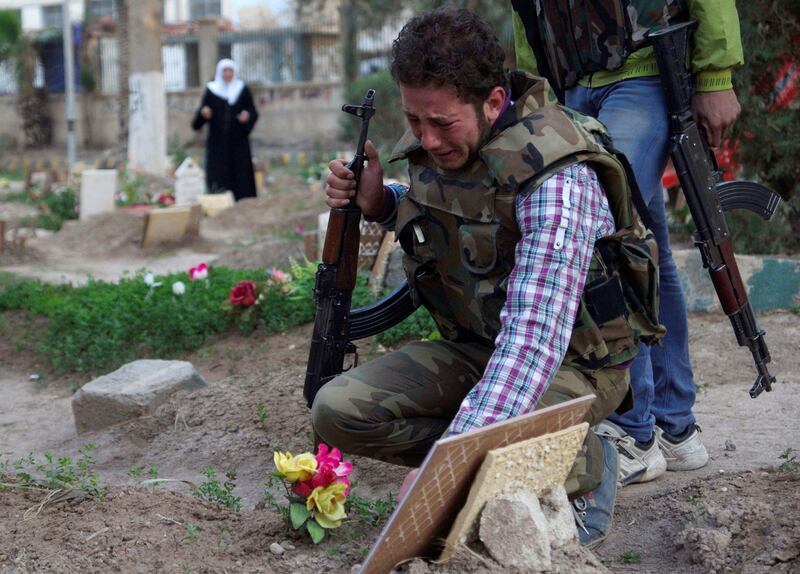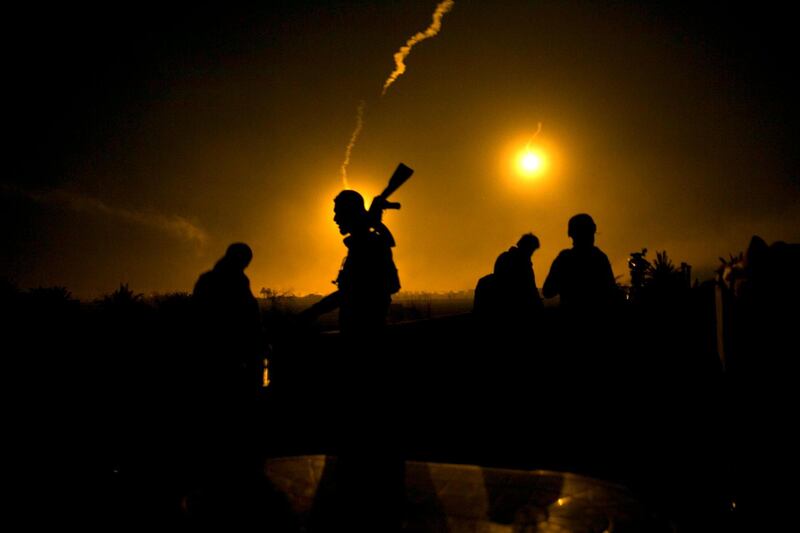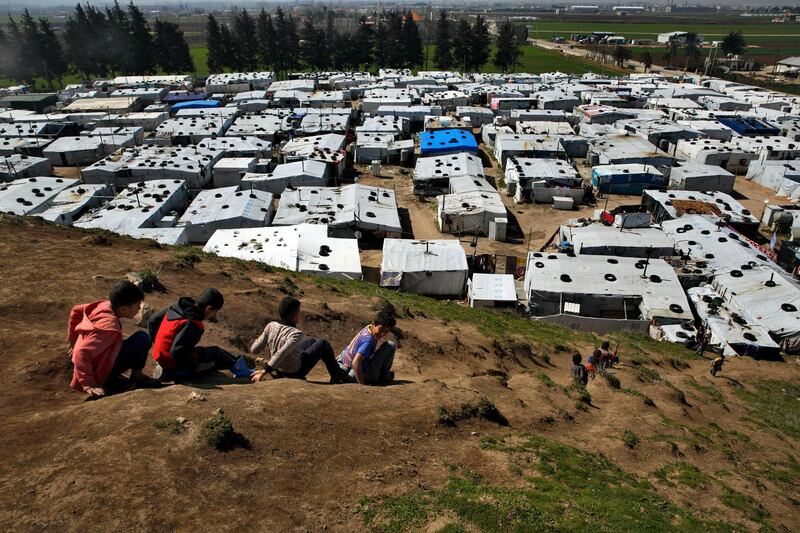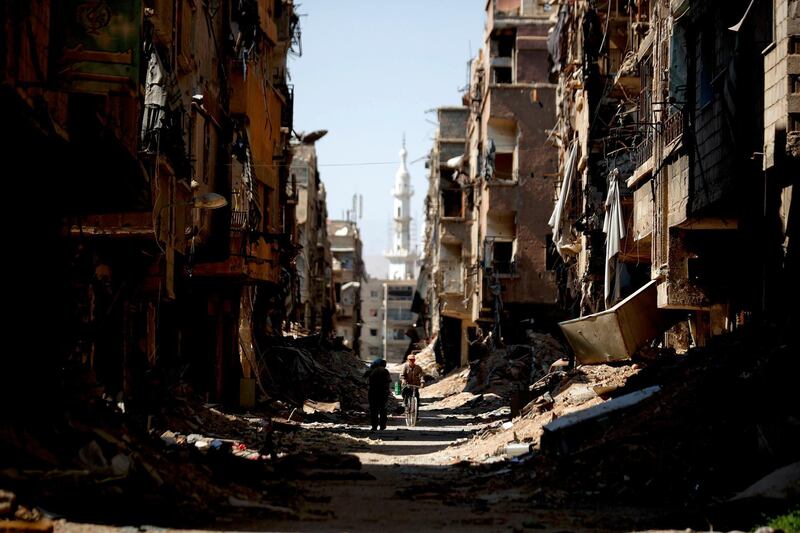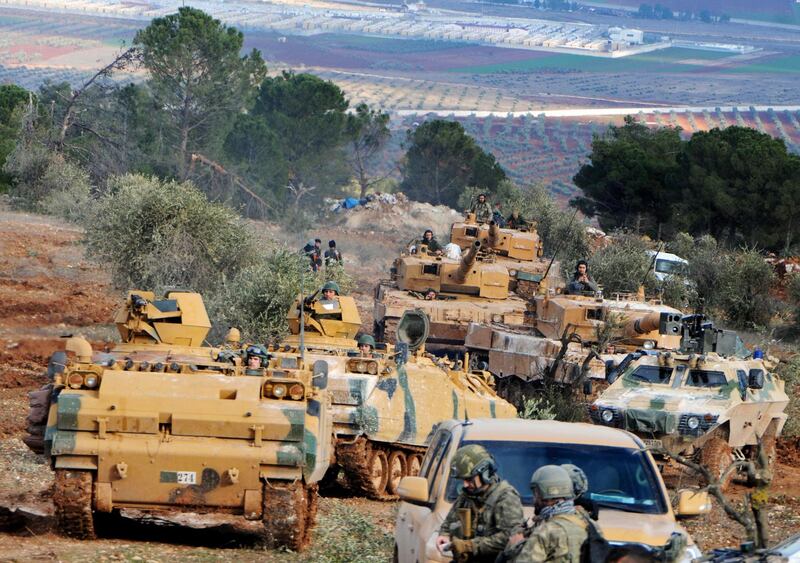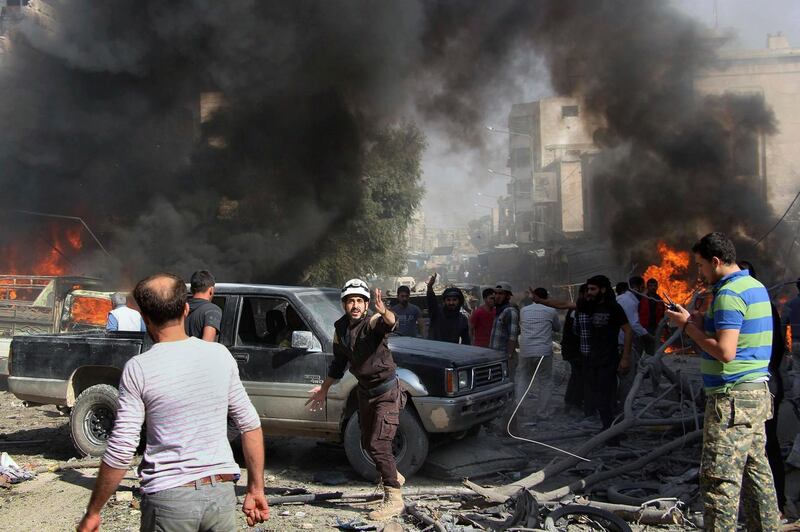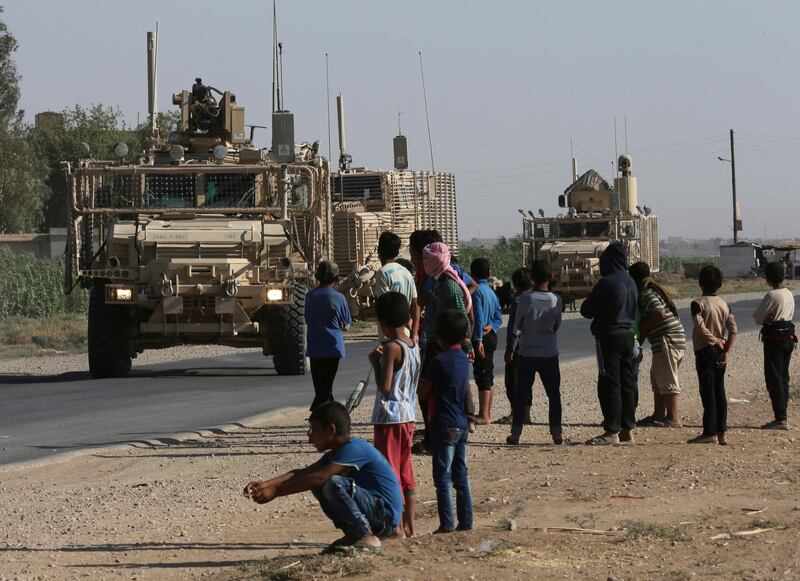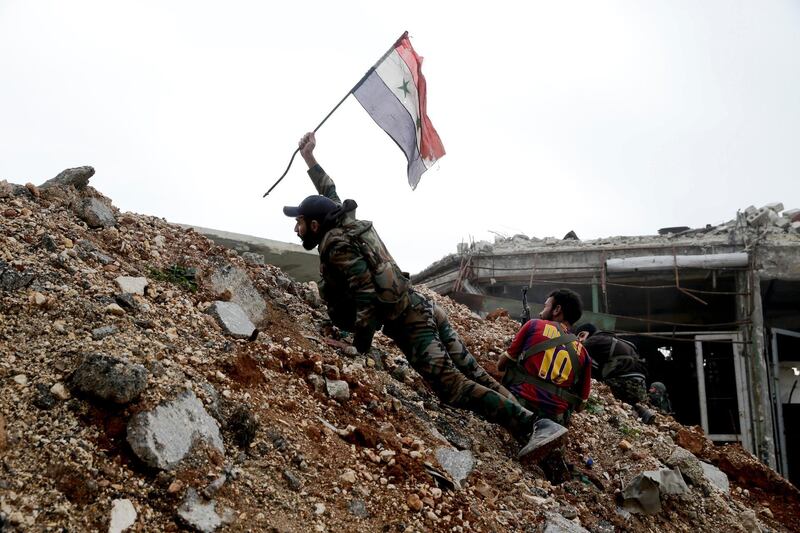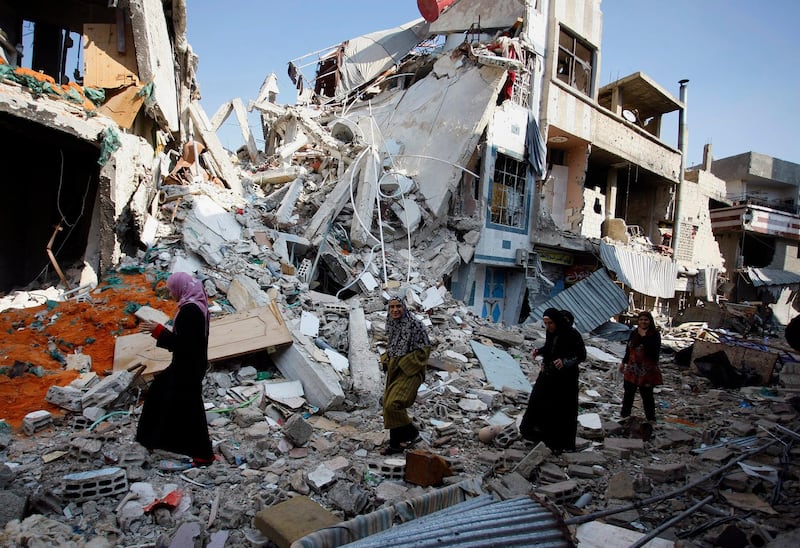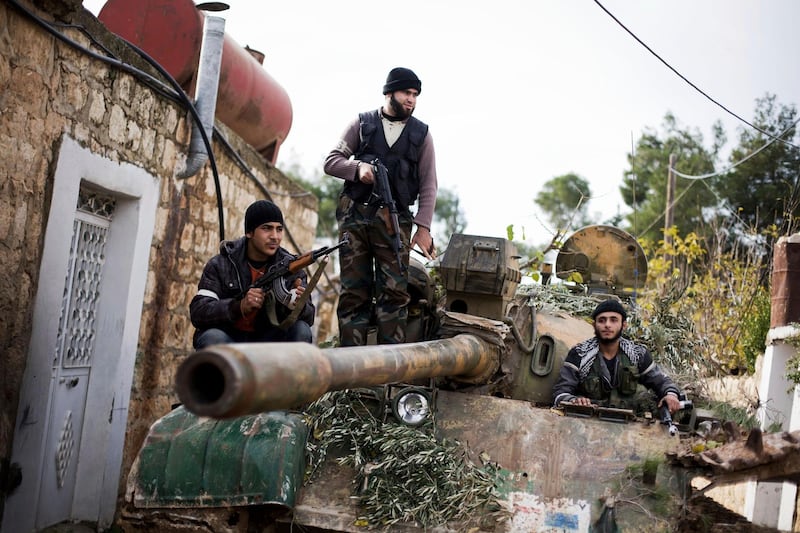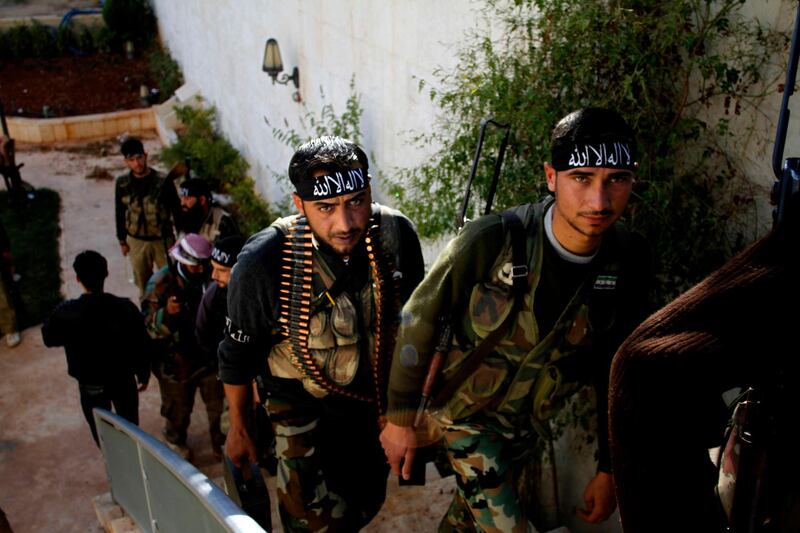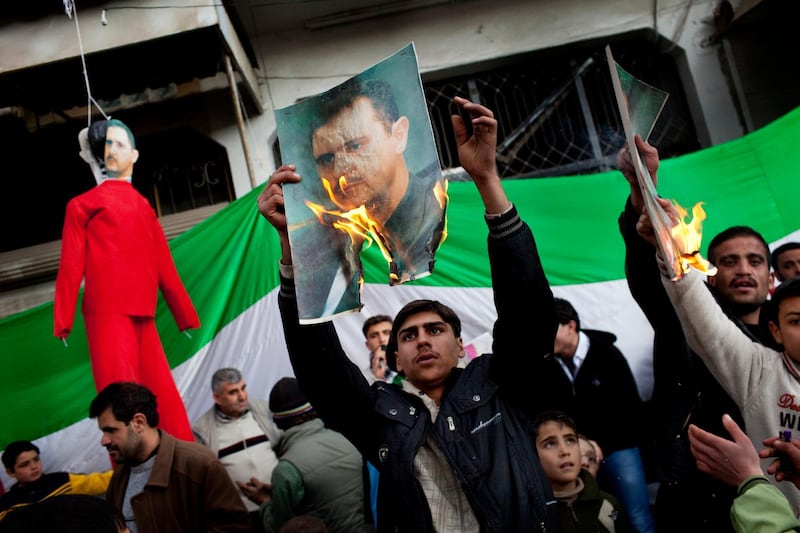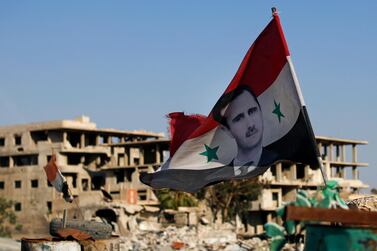Eight years of war in Syria have left more than 370,000 people dead including 112,000 civilians, a monitor said on Friday.
The Syrian Observatory for Human Rights, which has a network of sources across the country, said more than 21,000 children and 13,000 women were among the dead.
The conflict flared after unprecedented anti-government protests in the southern city of Daraa on March 15, 2011. Demonstrations spread across Syria and were brutally suppressed by the regime, triggering a multi-front armed conflict that has drawn in foreign powers and militant groups.
The Britain-based Observatory's casualty count has risen by about 10,000 from its last tally issued in September, but is still lower than the last estimate given by the UN in 2016, which put the number of dead at about 400,000. However, accurate numbers are difficult to obtain as the Syrian regime restricted international access to many areas as it sought to crush the uprising.
The number of Syrian government soldiers and pro-regime fighters killed now stands at 125,000, the opposition-aligned Observatory said.
It said other fighters, including rebels and Kurds, accounted for 67,000 of those killed.
Almost 66,000 were extremist militants, mainly from ISIS and Hayat Tahrir Al Sham (HTS), which is dominated by Al Qaeda's former affiliate in Syria.
The devastating conflict has displaced or sent into exile about 13 million Syrians, causing billions of dollars worth of destruction.
The UN High Commissioner for Refugees says 6.2 million people have been displaced within Syria itself, while 5.6 million people are refugees in the region. Turkey hosts more than 3.6 million Syrian refugees, followed by Lebanon, which says it hosts 1.5 million, and Jordan, where the government says it is hosting 1.3 million refugees.
At least another 246,000 Syrians have taken refuge in Iraq and 130,000 in Egypt, the UN refugee agency says.
Hundreds of thousands of Syrians have also headed to Europe, notably to Germany, where they account for the majority of asylum seekers.
Five million Syrian children have been born since 2011, one million of them in refugee-hosting countries, according to the UN children's fund Unicef. An estimated 2.1 million Syrian children are out of school, and more than one in three schools have been damaged or destroyed, it says.
With the support of powerful allies Russia and Iran, President Bashar Al Assad has won his war for political survival but his country is fractured and cash-strapped.
Having reversed rebel gains with a massive Russian intervention, Mr Al Assad now controls almost two-thirds of Syria's territory.
But key areas remain beyond regime control, including a swathe of the oil-rich north-east held by Kurdish-led fighters.
Washington backs the Syrian Democratic Forces, which spearheaded an anti-ISIS campaign that is drawing to a close near the Iraqi border.
Idlib in north-western Syria, held by HTS, is protected by a ceasefire deal between Ankara and Moscow which has seen Turkish troops deployed to the area.
Syria's conflict is estimated to have set its economy back three decades, destroying infrastructure and paralysing the production of electricity and oil. The United Nations estimates the overall cost in damages at nearly $400 billion.
With unemployment, power cuts and gas shortages, more than 80 per cent of Syrians live under the poverty line, according to the UN humanitarian agency OCHA, and 13 million people inside the country are in need of humanitarian aid.
Mr Al Assad, however, has regained control of key commercial arteries and started a tentative comeback on the Arab diplomatic scene.
Several countries have called for Syria to be reintegrated into the Arab League, from which it was suspended as the death toll from the uprising mounted in 2011.
